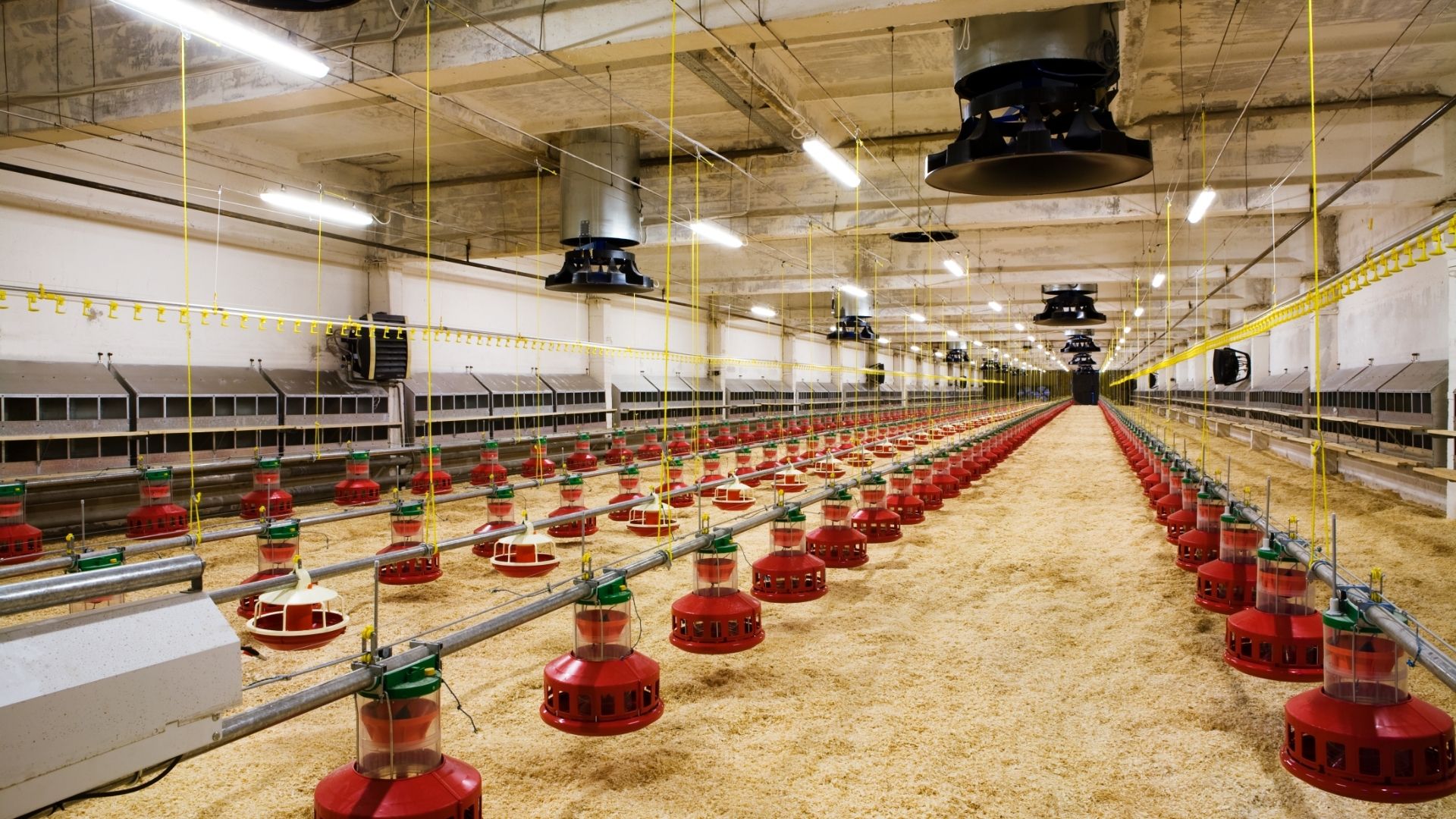Avian coccidiosis is an intestinal disease caused by protozoa of the genus Eimeria that affect different portions of the gastrointestinal tract (GIT) of birds. The species multiply in intestinal cells causing tissue destruction in the intestine, which impairs digestion and nutrient absorption, resulting in watery or hemorrhagic diarrhea.
Young birds have low immunity, which makes them more susceptible to contamination after exposure to the infected oocyst (ingestion). Birds that survive coccidiosis acquire immunity, which protects them against later outbreaks of the disease, which usually occur around 3 to 8 weeks of age.
Animals infected by Eimeria ssp, due to extensive tissue damage, are exposed to other infections by pathogenic microorganisms such as bacteria of the Clostridium genus, especially Clostridium perfringens, a species known to be the cause of necrotic enteritis.
Different species of eimeria
The genus Eimeria is composed of seven species of economic importance for poultry: E. acervulina, E. brunetti, E. maxima, E. mitis, E. praecox, E. necatrix, and E. tenella.
Among the mentioned species, E. acervulina, E. maxima, and E. tenella are considered the most important for the poultry industry, due to their ubiquity in farms, innate pathogenicity, and immunological characteristics, being E. maxima considered, among the other species, one of the most pathogenic.
Oocyst counts and prophylaxis
The control of coccidiosis and, consequently, of Necrotic Enteritis, has become more difficult in organic production and without antibiotics. To compensate for the loss of tools to control coccidiosis, alternative additives such as plant extracts and pre or probiotics, enzymes and antioxidants are tested and used more frequently.
Also the inclusion of ingredients with better digestibility with glutenose or CPS – Soy Protein Concentrate, with low levels of anti-nutritional and allergens such as glycinine and B conglycinin, help to reduce challenges in the initial phases.
Productive parameters and lesion scores are the primary parameters used to assess the effectiveness of a given product, but oocyst count is an important secondary parameter, indicating direct antiparasitic efficacy.
The ideal in an aviary would be the absence or low load of oocysts in feces and bedding, as a good indicator of low parasite load, attesting to good management, especially in the first days.
Studies show that a load of oocysts in feces can vary between 50 oocysts per gram – opg and 34,000 opg. In bed, it can stay between 75 opg and 23.9 thousand opg, over 40 days. This variation can be explained by a multifactorial action, vaccination, management, and health.
Access our linkedin
Factors involved in the pathogenesis of coccidiosis may vary according to the characteristics of the strain or isolate, environmental factors external or internal to the host acting on the parasite, genetic characteristics, and immune status of the host, as well as resistance and resilience. Therefore, these factors can influence the severity of the infection. The host reacts to coccidial infection depending on the number of sporulated oocysts ingested. Generally, an increasing number of ingested oocysts increases the number of oocysts produced and the severity of the infection. However, there is a maximum limit of oocyst production within the host due to the occurrence of the crowding effect, i.e., overpopulation of the parasite, which decreases the production of oocysts within the host.
Gut health additives
The bird intestine functions as a dynamic barrier capable of excluding potential pathogens. As it is the gateway for antigens, it is essential that there is a fine balance in the intestine between response and tolerance that allows the differentiation between harmless antigens and antigens from pathogens.
Read Too: 60% PB Soy Protein Concentrate (SPC)
The preservation of intestinal health is essential for birds to meet their needs for digestion, nutrient absorption, and the development of defense mechanisms against pathogens. Adverse intestinal changes cause a decrease in the performance of birds, preventing them from expressing their full genetic potential.
Birds raised in intensive systems have a fast-breeding cycle, so it is essential to practice preventive measures to minimize the incidence of coccidiosis. It is suggested the implementation of strict management plans that associate health, nutrition, biosecurity protocols, and the use of additives as a way to mitigate risks and improve the gastrointestinal health of birds.
Additives should never be used to address deficiencies/problems in handling, welfare, and any other**.

